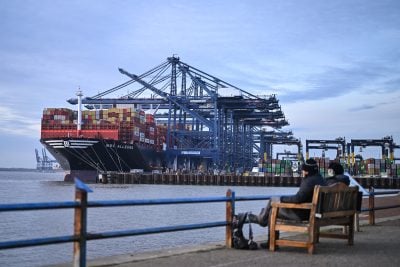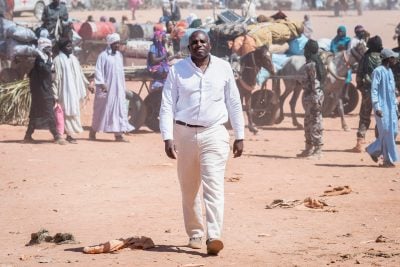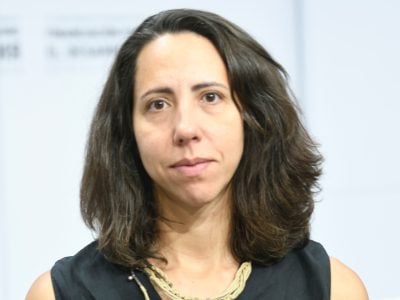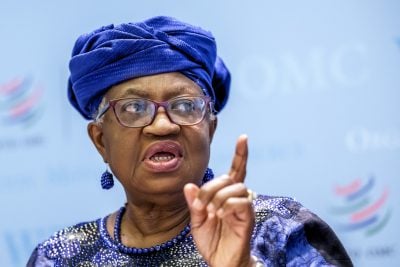After two years of civil war, Ethiopia’s government and the Tigray People’s Liberation Front (TPLF) signed an African Union-brokered ceasefire agreement on 2 November after eight days of negotiations in South Africa.
The UN called the agreement, signed on the eve of the war’s second anniversary, a “critical first step” toward the end of one of the world’s bloodiest contemporary conflicts, one that has left hundreds of thousands dead from combat and famine, forced millions more to flee their homes, and seen accusations by human rights groups and the UN of war crimes.
The step toward peace is tentative, the toll on the economy has been heavy and the reputation of its prime minister, Abiy Ahmed, has been marred, but investors like Zemedeneh Negatu, global chairman of the Fairfax Africa Fund, say that the peace deal offers a chance for Ethiopia to recover.
“I do not see a permanent effect on the economy,” says Negatu.
“The fundamentals of the country remain attractive and my sense is the country will regain its growth momentum. That is why we are looking at putting an even more substantial investment into Ethiopia.”
Pressure from international community
The ceasefire agreement is not the first attempt at peace between the warring parties – a roughly nine-month truce unravelled in August – and the deal could be hard for the TPLF to sell to the people of the region. The agreement calls for the full disarmament of Tigray’s forces within 30 days and paves the way for Ethiopian government troops to enter Tigray’s regional capital, Mekelle.
Kjetil Tronvoll, a scholar of Ethiopian politics and professor of peace and conflict studies at Oslo New University College, told The New York Times that it will be “an extremely controversial issue” to convince Tigrayan forces to “voluntarily disarm and make themselves indefensible in the face of an enemy they have been fighting for two years”.
However, both sides are under significant pressure to come to terms. In recent months, an Ethiopian government offensive has once again raised the spectre of famine in Tigray; even before the resumption of hostilities, the UN estimated some 13m were “in need” across a war zone comprising Tigray, Amhara and Afar in the north. In the weeks before the deal, the Tigrayan government had lost control of crucial settlements including the large town of Shire to government forces.
But the Ethiopian government has also come under substantial pressure from the international community since the resumption of its offensive in late August.
In October, the chair of the African Union, Moussa Faki Mahamat, called for an unconditional ceasefire, and UN secretary general António Guterres demanded the immediate withdrawal and disengagement of Eritrean armed forces, who are supporting the Ethiopian government.

“There is no military solution,” he said. “Civilians are paying a horrific price. Indiscriminate attacks – including in residential areas – are killing more innocent people every day, damaging critical infrastructure and limiting access to vital services.”
On 12 October, a joint statement from Australia, Denmark, Germany, the Netherlands, the UK and the US expressed “profound concern” at the escalation and the humanitarian situation in northern Ethiopia.
The statement noted recent evidence of unlawful killings, physical abuse, and gender-based violence published by the International Commission of Human Rights Experts on Ethiopia (ICHREE) and other agencies.
“We are deeply concerned by the ICHREE’s finding that there are reasonable grounds to believe that starvation of a civilian population has been used as a method of warfare. The resumption of fighting in northern Ethiopia raises a high risk of further human rights violations and abuses.”
Impact on economy
Economic pressure is also mounting. The government hopes to initiate a new funding programme with the IMF to proceed with a planned restructuring of its $30bn of debt, and an end to the conflict would give the government an opportunity to repair the damage the conflict has done to its international image.
The agreement represents “a critical step towards restoring lasting peace and stability,” the IMF said in an emailed response to questions by Bloomberg. “Fund staff have ongoing discussions with the authorities on their reform plans, which could set the ground for negotiating a potential new fund program. We will be considering next steps and discussing these with the authorities.”
The war has contributed to GDP growth slowing from 9% in 2019 to 6.1% in 2020, 6.2% in 2021 and a projection of 3.8% in 2022, according to the IMF.
“While the war has disrupted business activity in Tigray, it has also negatively impacted economic growth throughout the whole country,” says Greta Kunauskaite, a research analyst at Euromonitor International.
“Due to violations of human rights, Ethiopia was suspended from the Africa Growth and Opportunity Act [AGOA], losing duty-free access to the United States and pushing foreign manufacturers to close their facilities.
“For example, global fashion giant PVH Corp, representing brands such as Tommy Hilfiger, has closed its manufacturing facility in Hawassa, Ethiopia’s model industrial park.”
Previously, Ethiopia had taken advantage of its tariff-free access to the US market to successfully attract foreign investors to its manufacturing sector, particularly textiles and footwear.
“Moreover, the country’s credit ratings have been downgraded, deterring potential investors, while donor support has decreased, and multilateral lenders like the World Bank and IMF are less keen on disbursing loans to Ethiopia, exacerbating current foreign exchange shortages in the country,” says Kunauskaite.
“The lack of foreign exchange reserves has added to the further devaluation of the birr, setting off an inflationary spiral within the country. Over 2020-21, the inflation rate already exceeded 20% in Ethiopia and is projected to surpass 30% over 2022-2023.”
The conflict has harmed Abiy Ahmed’s reputation. Once lauded as a “unifier” and the recipient of a prestigious Nobel Peace Prize, a damning article in The New Yorker recently investigated accusations that he stoked the civil war and that his army has been involved in atrocities.
‘Fundamentals remain strong’
Still, Negatu points out that Ethiopia has one of the largest economies in sub-Saharan Africa, and its GDP has continued to grow through turbulent times, including the Covid-19 outbreak and global inflation.
As the dust settles, Fairfax Africa Fund is advising banks which plan to enter the country.
“I speak as an American firm that is actively investing in Ethiopia”, says Negatu.
“Investors come to Ethiopia for the long haul. The fundamentals have remained strong, even through the Covid-19 outbreak and the war between Russia and the Ukraine. That is an indication that Ethiopia has a resilient economy.”
Demographics, agriculture and natural resources a few of the reasons Ethiopia remains attractive Ethiopia is home to roughly 123m people and that number is growing by more than 2% each year, according to Macro Trends.
“Large, young populations translate into economic power and the median age in Ethiopia is under 20 years”, says Negatu. “This means high productivity combined with competitive labour, energy and infrastructure costs.”
Another factor is that Ethiopia is primed for rapid urbanisation. “Today, Ethiopia is one of the least urbanised countries in Africa. Only about 20% of Ethiopians live in cities, but that number is rapidly changing and should double to 40% by 2040”, says Negatu.
Agriculture is another area where Negatu believes a post-war Ethiopia has an edge, with the potential to export produce to neighbours Kenya, Somalia and Sudan, and the Middle East.
“Ethiopia has about 75m hectares of arable land, only 16m of which are cultivated. Land, water and labour are available.”
Ethiopia’s untouched natural resources are another area with promise. This summer, the country announced the discovery of 7 trillion cubic feet of natural gas in Ogaden Basin
“This amount of natural gas is pretty monetisable”, says Negatu. “Some could be used domestically and some could be exported to countries like China.”
Banking and telecoms, previously dominated by government monopolies, are spaces where Ahmed has attempted to open the sector to private competition. It has been reported that a draft of the new banking legislation will allow foreign lenders to take stakes of up to 30% – and foreign individuals up to 5% – in Ethiopian banks. Details of the final plans are still being finalised in the run-up to their publication in December.
In telecoms, the government granted a license to the Safaricom-led Global Partnership for Ethiopia, a consortium that includes Japan’s Sumitomo and Britain’s Vodafone, according to Bloomberg.
Restoring stability
However, Kunauskaite cautions that continued political and economic instability could dissuade investors.
“While the government needs foreign investments to overcome severe foreign exchange shortages and stimulate economic growth, the prevailing uncertainty poses risks to financial assets within the country, a highly unfavourable situation for potential investors, especially foreign bankers. Recent results of the telecom liberalisation illustrate the lack of investors’ appetite in Ethiopia. Out of nine companies that expressed their interest to bid for telecom licenses, only two have submitted their offers.”
Kunauskaite says that companies were prevented from building their own infrastructure due to the risks of investing in and owning telecom infrastructure in a war-stricken country.
Instead, they were expected to rely on the existing telecommunications infrastructure, which is not always of good quality.
“Potential investors cited a lack of information on accessing foreign exchange and the cost of using state infrastructure as the major investment bottlenecks”, says Kunauskaite.
“Due to economic risks, uncontrolled inflation and lack of government transparency, the liberalisation of the banking industry is likely to undergo a similar scenario, with prevailing investors’ indifference until the country’s financial and political situation becomes more stable.”
Still, Negatu notes that African banks and banks from the Gulf have shown a desire to enter Ethiopia.
“All of these banks are showing a very strong interest in Ethiopia. Kenyan banks have sent their executives.”
With a peace agreement finally signed, investors will soon see if the government of Ahmed can restore the stability necessary for Ethiopia to get back on track.
Want to continue reading? Subscribe today.
You've read all your free articles for this month! Subscribe now to enjoy full access to our content.
Digital Monthly
£8.00 / month
Receive full unlimited access to our articles, opinions, podcasts and more.
Digital Yearly
£70.00 / year
Our best value offer - save £26 and gain access to all of our digital content for an entire year!
 Sign in with Google
Sign in with Google 



